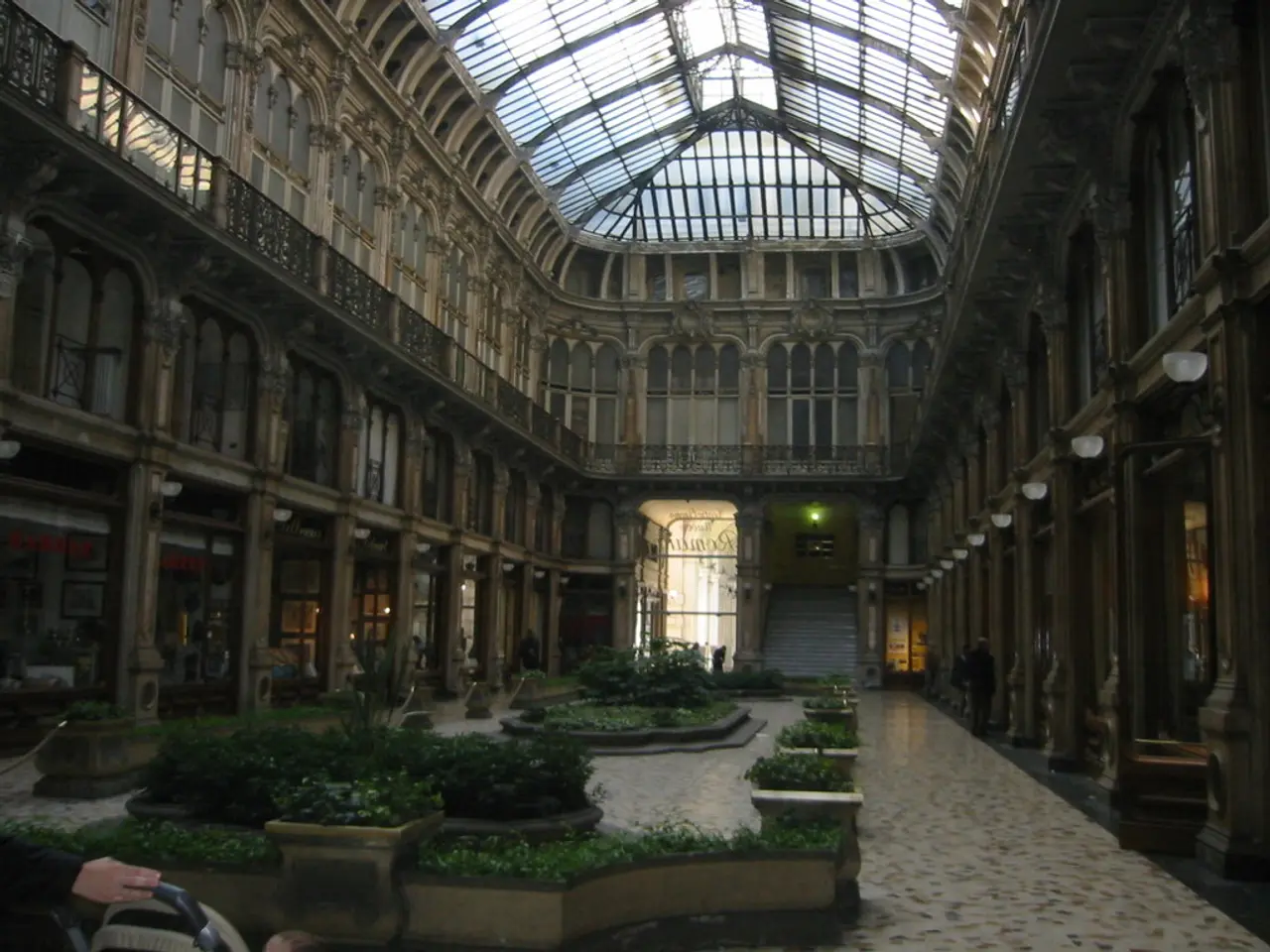European Union Environmental Protection Directive Proposal Endorsed by the Commission
In the heart of Germany, the ongoing Energy Minister Conference in Bremen has seen a significant development in renewable energy policies. Senator Kathrin Moosdorf, the Senator for Environment, Climate, and Science in Bremen, has proposed the implementation of an EU directive on energy sharing in Germany, aiming to simplify Renewable Energy Communities (RECs) in industrial areas.
This proposal has received broad support from the federal states, with the states advocating for its quick implementation. The states are collaborating to push for the quick implementation of the simplifications for RECs in industrial areas, as proposed by Senator Moosdorf.
The current legal regulations prevent companies from supplying excess electricity to neighbouring businesses. However, the EU directive on energy sharing would enable companies to supply their climate-friendly electricity to neighbouring businesses. This could potentially lead to a significant reduction in greenhouse gas emissions, aligning with EU climate targets.
More companies in Bremen's industrial areas are installing Photovoltaic (PV) systems on their own roofs, with some producing more climate-friendly electricity than they need. Industrial and commercial properties have large roof surfaces suitable for solar installations on a significant scale.
The states are committed to working together to ensure the quick implementation of the simplifications for RECs in industrial areas. They are aiming to enable companies in Bremen and Bremerhaven to implement the simplifications for RECs in industrial areas. There is great potential for further expansion of PV energy in industrial and commercial areas.
As of early July 2025, Germany is in the process of implementing the updated EU Renewable Energy Directive (RED III), which includes provisions relevant to RECs, including those in industrial areas. However, the implementation is still underway, and not fully completed.
The draft bill, called the second Act to Further Develop the Greenhouse Gas Reduction Quota (GHG quota), published by Germany’s Federal Ministry for the Environment, aims at strengthening incentives for greenhouse gas emission reductions but mainly focuses on transport sectors and tightening the quota system. It marks progress toward compliance with the EU directive’s requirements but is not solely dedicated to energy sharing or RECs in industrial areas specifically.
There is no explicit detail in the publicly available draft or recent updates that directly mentions Senator Kathrin Moosdorf’s proposal or specific legislation focused exclusively on energy sharing mechanisms for RECs in industrial zones. The legislative process in Germany and the EU continues to evolve, with some environmental-related directives facing delays or review.
In conclusion, while Germany is actively working on implementing the EU directive on renewable energy that underpins energy sharing and RECs, the process is still ongoing as of June 2025. There is no clear public information that Senator Kathrin Moosdorf’s specific proposals for energy sharing in industrial areas have been fully enacted or adopted yet. The latest draft bill reflects broader compliance with the directive but does not highlight tailored measures exclusively targeting energy sharing in industrial RECs.
[1] Bundesministerium für Umwelt, Naturschutz, Bau und Reaktorsicherheit (2025). Zweites Gesetz zur Weiterentwicklung des Emissionshandels (Emissionshandelsgesetz - EHG II). Retrieved from https://www.bmub.bund.de/bmub/en/environment/climate/greenhouse-gas-emissions-trading/act-to-further-develop-the-greenhouse-gas-reduction-quota-ghg-quota-act--ghg-quota-ii.html
[2] European Commission (2021). Guidance on the implementation of the Energy Efficiency Directive and the Renewable Energy Directive for the period 2021-2027. Retrieved from https://ec.europa.eu/energy/en/topics/energy-efficiency/guidance-implementation-energy-efficiency-directive-and-renewable-energy-directive-period-2021-2027
[3] European Commission (2022). State of play of the implementation of the Energy Union legislative framework. Retrieved from https://ec.europa.eu/energy/en/topics/energy-union/state-play-implementation-energy-union-legislative-framework
- The proposal by Senator Kathrin Moosdorf, pushing for the quick implementation of an EU directive on energy sharing, aligns with the financial aspect as it encourages investments in renewable-energy projects within the environmental-science industry.
- The states' collaborative efforts to simplify Renewable Energy Communities (RECs) in industrial areas, as suggested by Senator Moosdorf, could foster growth in the renewable-energy sector and decrease dependency on traditional fossil fuel-based industries.
- With the EU directive on energy sharing, industries within the environmentally sensitive areas, such as Bremen's industrial zones, have the potential to transform their operations by harnessing renewable energy, lowering their footprint, and contributing to the broader renewable-energy objectives.




